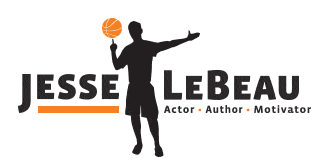Mastering Assertiveness Skills: A Teen’s Guide to Speaking Up & Standing Out
Introduction
Imagine walking into a room, feeling that buzz of energy, knowing you’ve got something important to say, and actually saying it. No hesitation. No second-guessing. Just you, being unapologetically yourself, speaking up, and standing out. That’s the power of assertiveness, and it’s a game-changer, especially during your teen years.
Hey, it’s Jesse here. I’ve been on quite the journey myself – from feeling unsure and out of place to finding my voice and making it heard. And let me tell you, mastering assertiveness skills didn’t just happen overnight. It took real effort, some solid support, and a fair share of stumbles along the way. But it was worth it. Because being assertive? It’s about more than just speaking up; it’s about respecting yourself and demanding that same respect from others. It’s about setting boundaries and pursuing your dreams without fear holding you back.
Now, I know what you’re thinking. “Assertiveness is easier said than done,” right? Especially as a teenager, when everything from school pressure to social dynamics feels like it’s on another level. But that’s exactly why we’re diving into this together. Because being a teen is tough, but it’s also the perfect time to build a foundation that’ll carry you through life.
In this guide, we’re going to explore what assertiveness means for you. We’ll tackle the basics, share real stories (including some of my own), and give you practical tips to start building your assertiveness toolkit. From handling peer pressure to navigating tough conversations with parents, we’ve got you covered. And because we’re all about taking action, you’ll find exercises and challenges designed to push you out of your comfort zone, in a good way.
So, whether you’re already on your way to becoming an assertiveness pro or you’re not quite sure where to start, this guide is for you. Let’s take this journey together, learn from each other, and transform those dreams into reality. Because your voice? It deserves to be heard. And I’m here to help you make that happen. Let’s get started.
Understanding Assertiveness: What It Means for Teens
When we talk about assertiveness, what comes to mind? Is it the outspoken classmate who always shares their thoughts? Or maybe it’s that friend who seems fearless in saying no. Well, assertiveness is all that and more. It’s the sweet spot between passivity (not standing up for yourself) and aggression (standing up for yourself but stepping on others in the process). Assertiveness is about respect—respecting others and, equally important, respecting yourself.
The Basics of Assertiveness: Beyond Aggression and Passivity
Let’s break it down. Being assertive means expressing your thoughts, feelings, and needs in a clear, direct, and respectful way. It’s about being honest with yourself and others without being hurtful or disregarding others’ rights. Think of it as a confidence booster that allows you to take control of your life in a healthy, positive way.
Why Assertiveness Matters in Your Teen Years
Your teen years are a time of massive growth, discovery, and challenge. It’s when you start to form your identity, make more of your own decisions, and navigate complex social situations. Being assertive during these years can help you in so many ways—from improving your self-esteem to strengthening your relationships. It empowers you to set boundaries and stand up for what you believe in, whether it’s in your friendships, at school, or at home.
Real Stories: When I Learned the Value of Being Assertive
Let me share a bit of my story. There was a time when I struggled to say no, especially to friends. I wanted to fit in, to be liked. But I realized that by not being true to myself, I was the one missing out. It took a school project, of all things, to change that. I had a vision, but it meant taking the lead and making my voice heard. It was scary, but you know what? It worked. Not only did the project turn out great, but I also learned the value of being assertive—of respecting myself and my ideas.
That experience was a turning point for me. It taught me that assertiveness isn’t about being loud or dominant. It’s about having the courage to be yourself and the confidence to express it. And guess what? You can learn this too. It starts with small steps, like expressing an opinion or setting a simple boundary. With practice, these small steps lead to bigger leaps, and before you know it, you’re living life on your own terms.
Building Your Assertiveness Toolkit
Becoming more assertive is like building a muscle—it takes practice, patience, and the right techniques. You wouldn’t expect to lift heavy weights without first strengthening your muscles, right? Similarly, developing your assertiveness skills starts with understanding where you are now and then gradually adding more strategies to your toolkit. Here’s how to begin.
Identifying Your Assertiveness Level: A Quick Self-Assessment
First things first, let’s figure out where you stand. Think about recent situations where you needed to express your thoughts or stand up for yourself. How did you react? Did you speak up, stay silent, or perhaps push too hard? Recognizing your natural tendencies is the first step toward growth. Remember, this isn’t about judgment; it’s about awareness and setting the stage for improvement.
Key Skills Every Assertive Teen Needs
Now, onto the skills. Being assertive boils down to a few core competencies:
-
Clear Communication: It’s all about saying what you mean and meaning what you say. But, doing it in a way that’s respectful and considerate.
-
Self-Respect: Understanding your value and rights is crucial. Remember, you deserve to be heard and respected.
-
Empathy: Yes, assertiveness involves empathy—putting yourself in someone else’s shoes. It’s about finding that balance between your needs and the needs of others.
-
Boundaries: Knowing where your limits are and feeling comfortable to communicate them is key to assertiveness.
Practical Exercises to Boost Your Assertiveness
Let’s put theory into action. Here are a few exercises to try:
-
The Mirror Challenge: Stand in front of a mirror and practice expressing your feelings or a boundary. Watch your body language. Are you standing tall? Is your voice clear and steady?
-
Role Play: With a friend or family member, practice assertive communication in different scenarios. This can help build your confidence in a safe environment.
-
The “No” Exercise: Look for opportunities to practice saying no. Start with small things. It’s about getting comfortable with setting boundaries.
Practicing these skills might feel awkward at first, but that’s part of the process. With each attempt, you’re not just learning how to be assertive; you’re also building the confidence to match.
Overcoming the Barriers to Being Assertive
But what happens when fear, doubt, or guilt creeps in? These feelings are common, especially when you’re stepping out of your comfort zone. Here’s how to tackle them:
-
Fear of Rejection: Remember, assertiveness is about expressing your needs and opinions respectfully. It’s not about the outcome but about the integrity of standing up for yourself.
-
Guilt: If you’re used to pleasing others, setting boundaries can feel selfish. Remind yourself that self-care is not selfish. It’s essential.
-
Backlash: Not everyone will respond positively to your newfound assertiveness. That’s okay. Stay true to yourself, and remember, respect goes both ways.
Embracing assertiveness is a journey, one that’s both challenging and rewarding. It’s about finding your voice and using it wisely. And remember, I’m right here with you, cheering you on every step of the way. Let’s keep pushing forward, transforming not just how we communicate, but how we see ourselves in the process.
Assertiveness in Action: Everyday Scenarios for Teens
Life’s full of moments that call for assertiveness, especially during your teenage years. Whether it’s in school, with friends, or at home, knowing how to stand up for yourself while respecting others is key. Let’s dive into some everyday scenarios where assertiveness can make a real difference.
Speaking Up in Class Without Fear
The classroom can be intimidating, right? Maybe you’re worried about what others will think or you doubt your own ideas. But your voice is valuable, and your contributions matter. Start small. Ask a question or share a thought on a subject you’re passionate about. Remember, it’s not just about having the right answer; it’s about being part of the conversation.
Handling Peer Pressure with Confidence
Peer pressure is a tough one. It’s about balancing the desire to fit in with staying true to who you are. Assertiveness here means being able to say no when something doesn’t feel right and being okay with it. It’s also about proposing alternatives. “I’m not up for that, but why don’t we do this instead?” You might be surprised at how often people respect your stance and even admire you for it.
Navigating Difficult Conversations with Parents
Talking to parents about sensitive topics—be it grades, curfew, or something personal—can be daunting. Approach these conversations with honesty and respect. Prepare what you want to say, and express your feelings clearly and calmly. “I feel like this because…” is a great way to start. Remember, it’s about opening a dialogue, not winning an argument.
Overcoming the Barriers to Being Assertive
Even with the best intentions, being assertive can be challenging. It’s normal to encounter obstacles along the way. Here’s how to keep moving forward:
-
Breaking Down the Fear of Rejection: Fear of how others will react can hold you back. But remember, assertiveness is about expressing yourself, not about how others respond. Your self-worth doesn’t depend on their approval.
-
Dealing with the Backlash: Not everyone will like or agree with your assertive behavior. That’s okay. What’s important is that you’re true to yourself. Stand firm in your beliefs and values, and remember, respect is a two-way street.
-
My Journey: Overcoming My Own Assertiveness Hurdles: I’ve had my share of moments when being assertive felt like the hardest thing in the world. But with each challenge, I learned more about myself and how to stand up for what I believe in. These experiences didn’t just build my assertiveness; they built my character.








